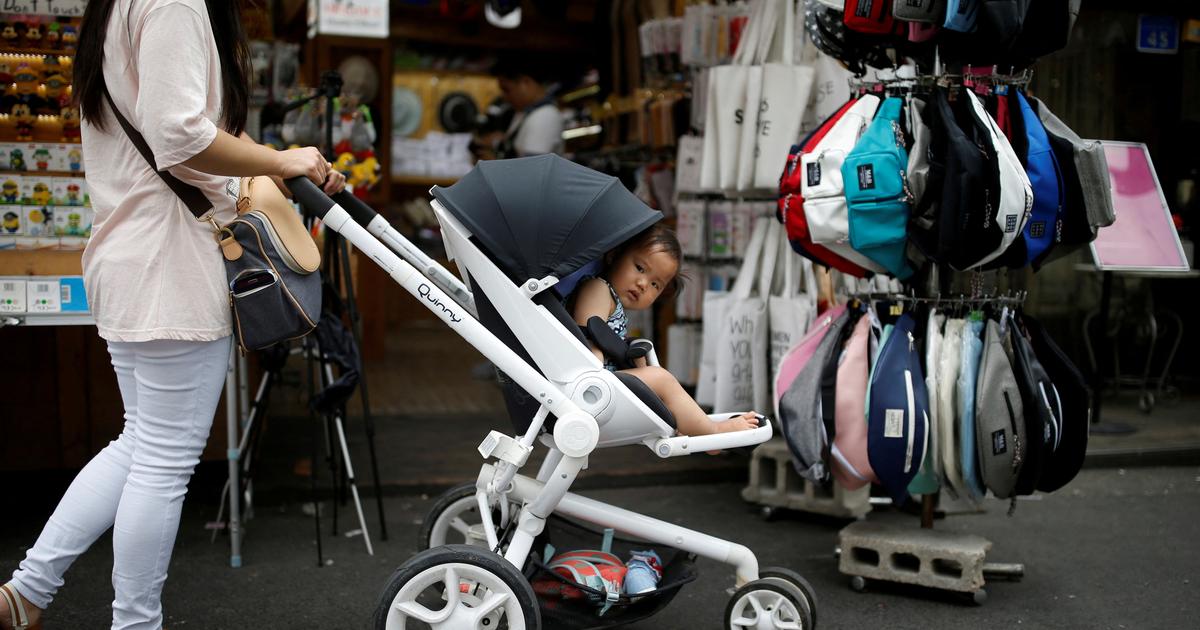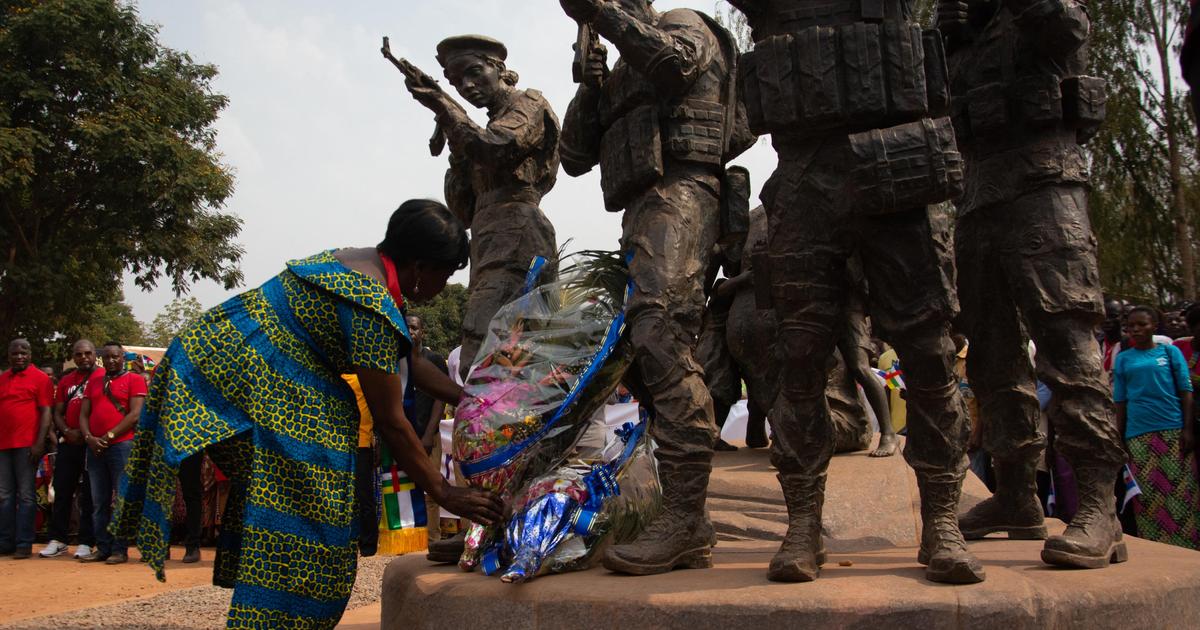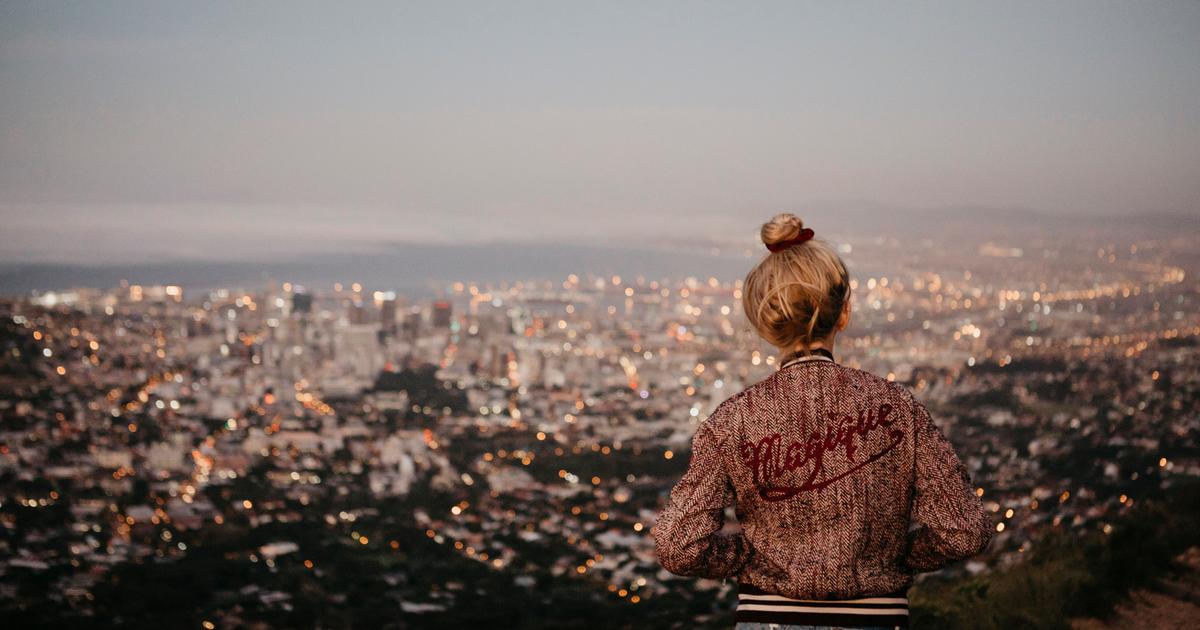Township next to middle class houses in South Africa: Divided society
Photo: fivepointsix / iStockphoto / Getty ImagesSPIEGEL : The number of coronavirus infections in South Africa is increasing sharply, with more than 530,000 registered cases. That is more than half of all officially reported infections in Africa. Why is the government not getting the pandemic under control?
Friedman : There are two main reasons for this: One is that she never got the testing and tracing of infection chains right. The South African government talks a lot about how many tests it does, but that's not the point. The tests don't come back fast enough. Sometimes they stay in the laboratory for days, sometimes for weeks. That makes it difficult to stop the virus.
SPIEGEL : And the second reason?
Friedman : The government does not have a very good relationship with a large proportion of the people who elected it. I mean mostly to people who live in townships. The government doesn't trust them. She doesn't want to work with them. You try to control it. Of course, that can't work.
SPIEGEL : Are regulations being created bypassing reality?
Friedman : The politicians sit in their offices and urge social distancing. But the only way the poorer people get from A to B is in a crowded taxi. People are told that they have to wash their hands regularly. But if they don't have clean water, how is that supposed to work?
"We have two worlds in one country"
SPIEGEL : Where does this disturbed relationship between the elite and the poor part of the population come from?
Friedman : In contrast to other African countries south of the Sahara, South Africa is both a First World and a Third World. We have two worlds in one country here. A significant portion of the population lives like wealthy people in North America and Western Europe. In the world of the affluent suburbs, people have access to all the facilities known from rich countries. And they behave accordingly. That is the standard by which the elite and the government operate. From this perspective they look for solutions. The problem is that around 80 percent of the country's population does not live in these conditions. In the townships and in rural areas people live like in the poor countries of Africa.
SPIEGEL : In its decisions, the government is mainly influenced by the needs and demands of the elite?
Friedman : The entire government response to the pandemic has been chaotic. At the beginning she said she would go by science. Then she started listening to lobby groups. So all possible restrictions were lifted while the number of cases rose rapidly. And people of the rich part of society are, of course, in a much better position to lobby.
SPIEGEL : Is the pressure from the economy getting too great?
Friedman : That's the only pressure the government is under. If there's no real pressure to fight the virus, just to lift the restrictions, then you don't have to be a rocket scientist to guess what is going to happen: exactly what happened. The institutions that are designed for that part of the country that lives under first-world conditions simply do not have the capacity to provide for the entire population.
SPIEGEL : South Africa dares to do more than it can?
Friedman : Absolutely. The strategy chosen by the government is based on the infrastructure of the wealthy. However, this infrastructure cannot also supply the rest of the population. The test jam is the best example of this. Instead of trying to find solutions that are appropriate to the actual situation, she focuses on a high-end approach that doesn't work.
SPIEGEL : The entire lockdown concept is an approach that only works in rich countries that can afford to finance their people for a while. That is in South Africa, it is generally not possible in Africa. How do you think the government should have responded?
"No attempt was ever made to work with the citizens of the country"
Friedman : I think the strict restrictions that were put in place in March were necessary. If the time gained had been used to implement a really effective testing and tracing system and an effective, community-based monitoring process, it could have worked. But no attempt was ever made to work with the citizens of the country. The government should have gone to where the people gather, to religious organizations, to school administrations, to health facilities. You should have talked to people and understood them as partners. But they don't see people as partners.
SPIEGEL : Is that the reason for the massive deployment of the police and the military?
Police officers in a township in Johannesburg: soap and information for local residents
Photo: Michele Spatari / AFPFriedman : The elite think the people in the townships don't understand complicated things like viruses. And there's no point in going out and trying to explain these things to them. So the government put around 70,000 soldiers on the streets and issued a series of orders. Of course, that didn't work.
SPIEGEL : Why?
Friedman : Partly because they ask people to do things that are impossible. Take the example of the taxis in full capacity: the fastest way to spread the virus is to cram a lot of people into taxis. But people don't take taxis because they want to, but because they are often the only way to get around - ultimately so as not to starve. But the government does not show any understanding of this problem.
SPIEGEL : There is increasing news about corruption in handling corona money. How much is corruption doing to contain the pandemic?
"The problem for business is not the regulations. The problem is the virus"
Friedman : It happens very often here that people in the state apparatus use their offices to pursue their own interests. This is of course at the expense of the general public. So if food parcels go missing, it's not because someone doesn't know how to get them to the people. It's because someone stole it to make money. How big the impact will be on the pandemic is difficult to say.
SPIEGEL : What can be done to bring about a change?
Friedman : The focus of business and the media is on restrictions and regulations. Nobody seems really interested in testing and tracing anymore. The problem for the economy is not the regulations. The problem for the economy is the virus. That has to be understood. It's not too late to change that. If the lobby groups had recognized that the top and only priority that this society should have in terms of the economy is to contain the virus, then we would now be in a completely different situation. Also economically. As in parts of America, one can try to lift all restrictions. But then you not only get exploding numbers of infections, but also only a few earn money.
Icon: The mirror







/cloudfront-eu-central-1.images.arcpublishing.com/prisa/ZH6GEEGTO7GQ27OPW2XP3TFYNI.jpg)






